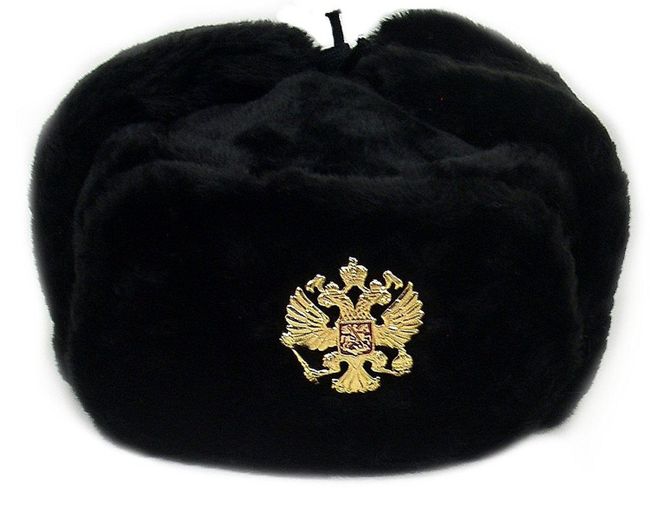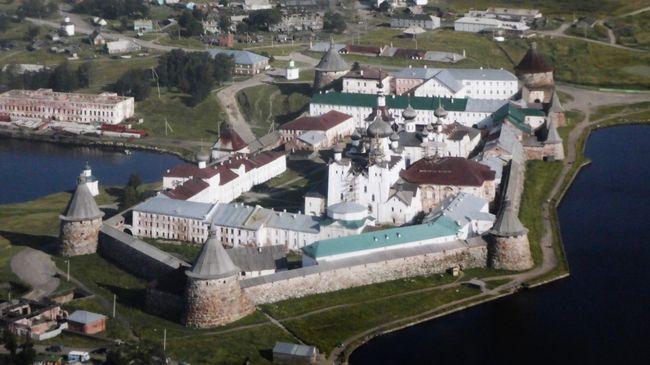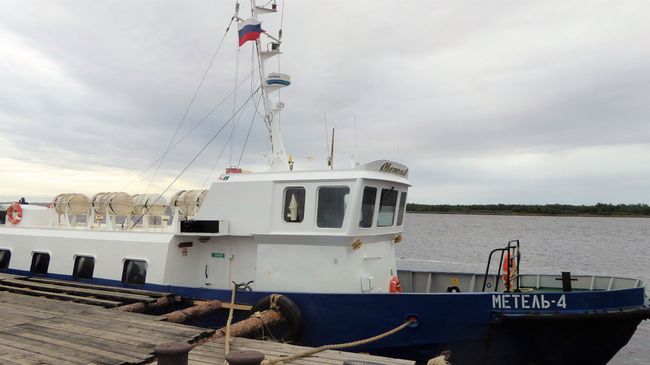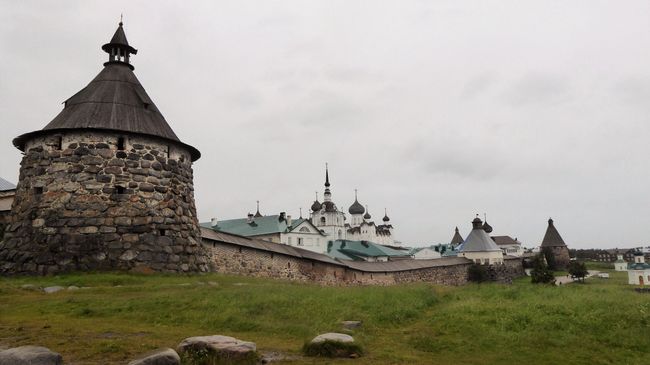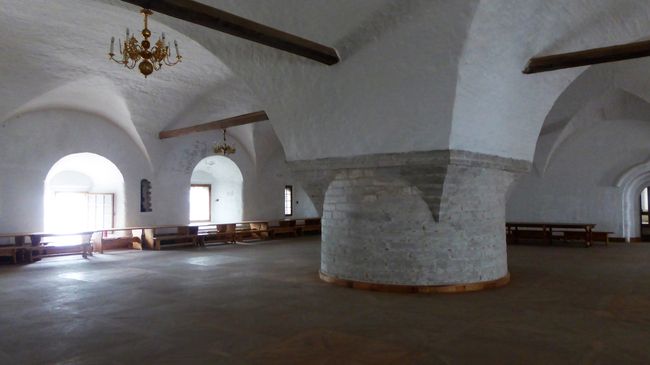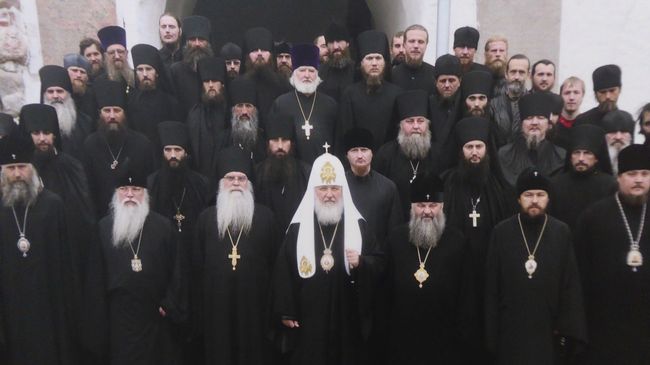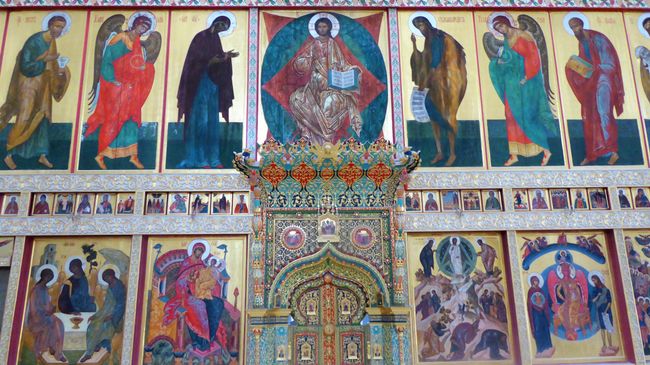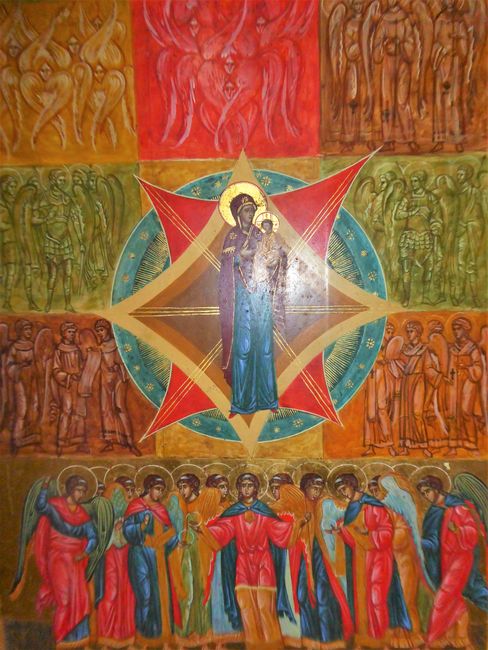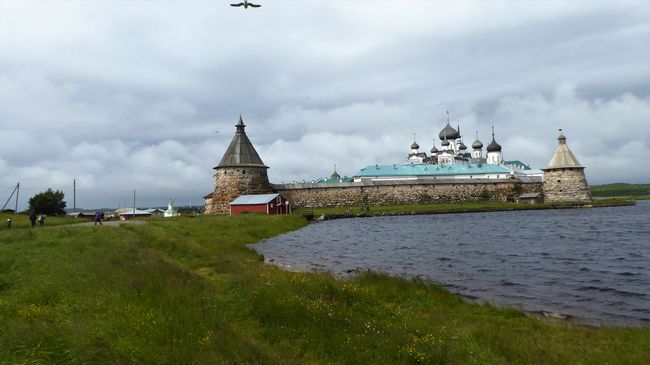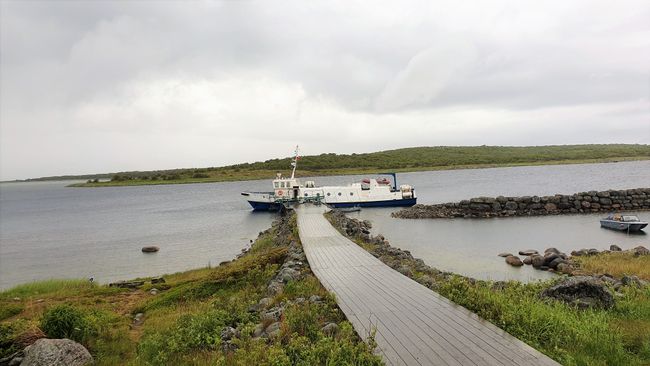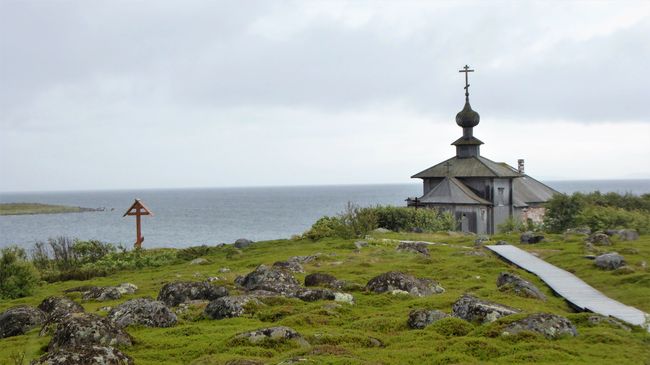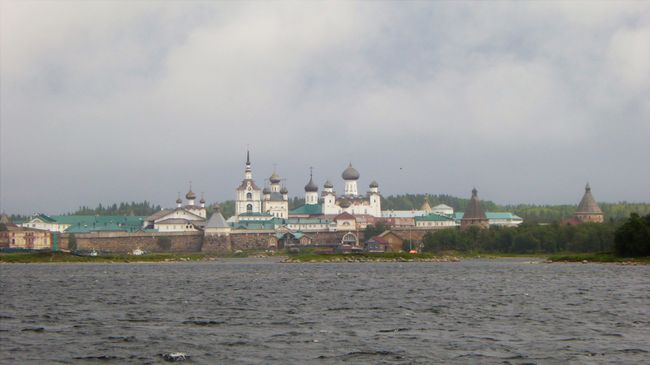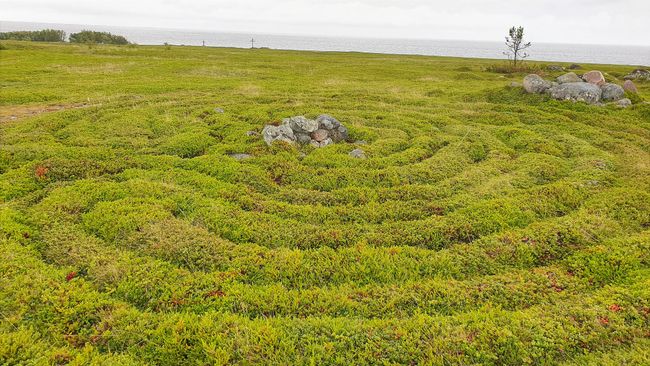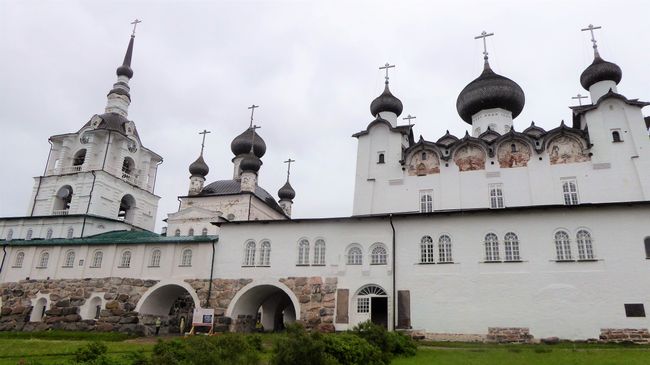Don Curry in November
Objavljeno: 14.07.2019
Don Curry loves the summer. He loves it warm, he loves it sunny, he loves it bright. No other season combines these criteria as often as summer. That's why he also likes to travel in summer, because it is the most beautiful time of year in most countries around the world.
In Russia, too, he had expected good, summery weather and had not been disappointed so far. Of course, there had been occasional rain showers: in Veliky Novgorod, for example, or on Kizhi Island, but in between the sun had always prevailed.
Today, Don Curry wanted to head for his northernmost destination, even a little further north than Rabocheostrovsk, where his accommodation was located. He had booked a boat tour to the Solovetsky Islands months ago, a round trip on the same day. The ship would leave at 8:00 a.m.

Punctually, Don Curry stood at the pier, just 300 meters from his accommodation. The leaden gray sky worried him a bit, but on islands the weather can be completely different. So Don Curry confidently entrusted himself to the fully booked "Metel-4", which would take him to the main island of Bolshoy Solovetsky in 2 hours. It was clear that this was not a hydrofoil boat gliding elegantly over the waves. This ship took on every wave and rolled heavily from side to side. The icy wind bothered Don Curry much more, blowing over the sea, and he felt it clearly when he spent a few minutes on the bow deck.
It was raining when the "Metel-4" docked at the main island around 10:00 a.m., by no means heavy rain like from buckets, but rather strong drizzle, but steady. Don Curry realized with unease that the pier was not directly next to the monastery, but about 1 kilometer north of it. So hiking was called for, in the rain, unprotected. After 500 meters, Don Curry spotted a small shop by the roadside, and directly at the entrance the clever owner had hung out a rain cape - with a large price tag: 150 rubles (about 2 €). Don Curry could not resist this offer. He chose a cape in blue, initially took it with him because the next customers were crowding in front of the shop, and he became more and more soaking wet on his way to the main portal of the monastery. Here in the covered area, he could finally calmly put on his rain protection.
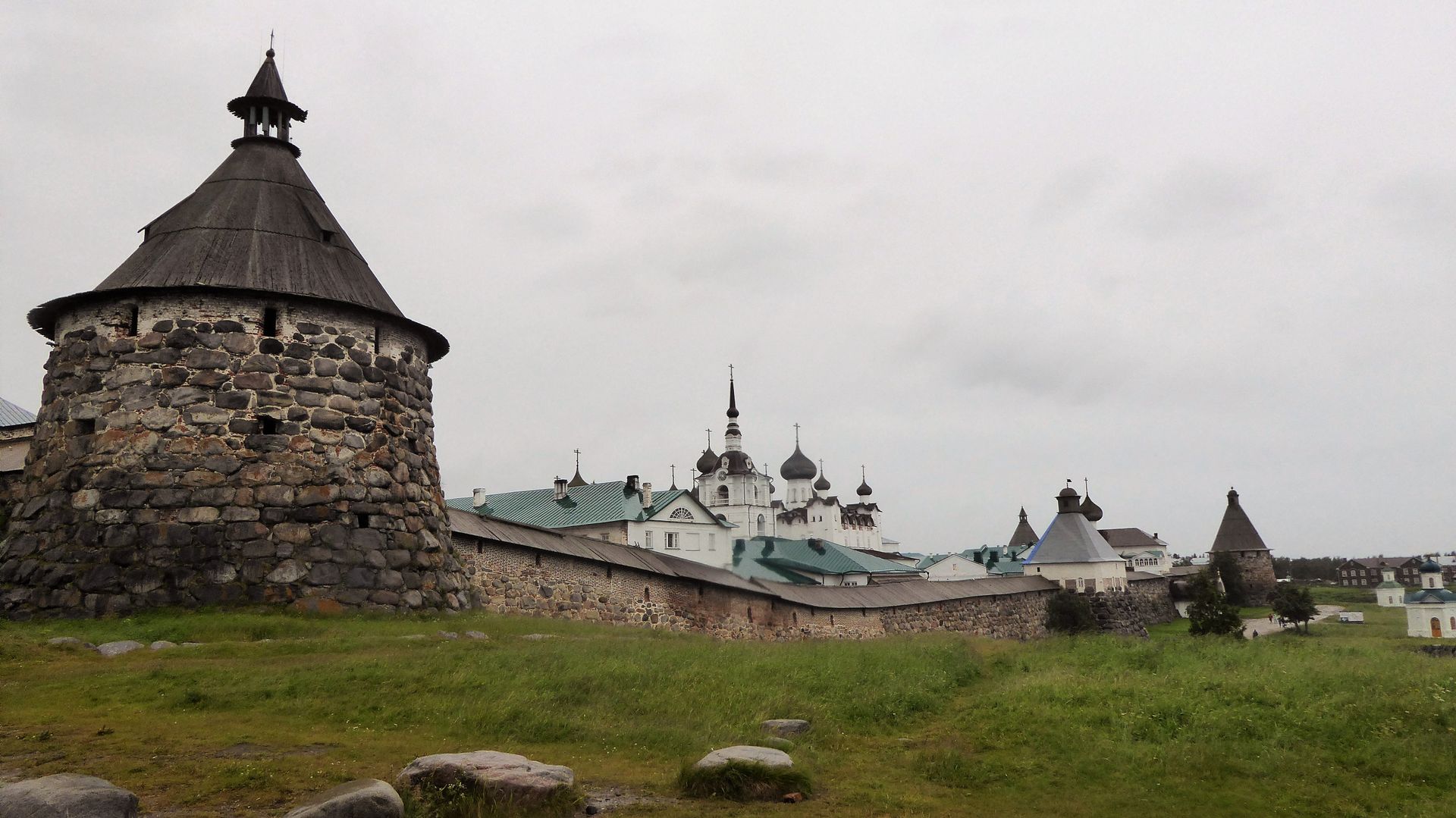
It was still raining when Don Curry entered the monastery and wanted to orient himself in the large inner courtyard. This turned out to be not easy at all, because the monastery had become a construction site in its entirety in the inner area. Scaffolding had been set up in isolated areas, construction debris was scattered in various places, some areas were closed off, some seemed quite makeshift. And there were no helpful signs anywhere. So Don Curry simply took one of the stairs to the upper floor and suddenly found himself in the huge refectory of the monastery. The enormous room was supported by a more than enormous central pillar. Don Curry estimated its diameter to be 6 to 8 meters. He had never seen such a pillar anywhere before.
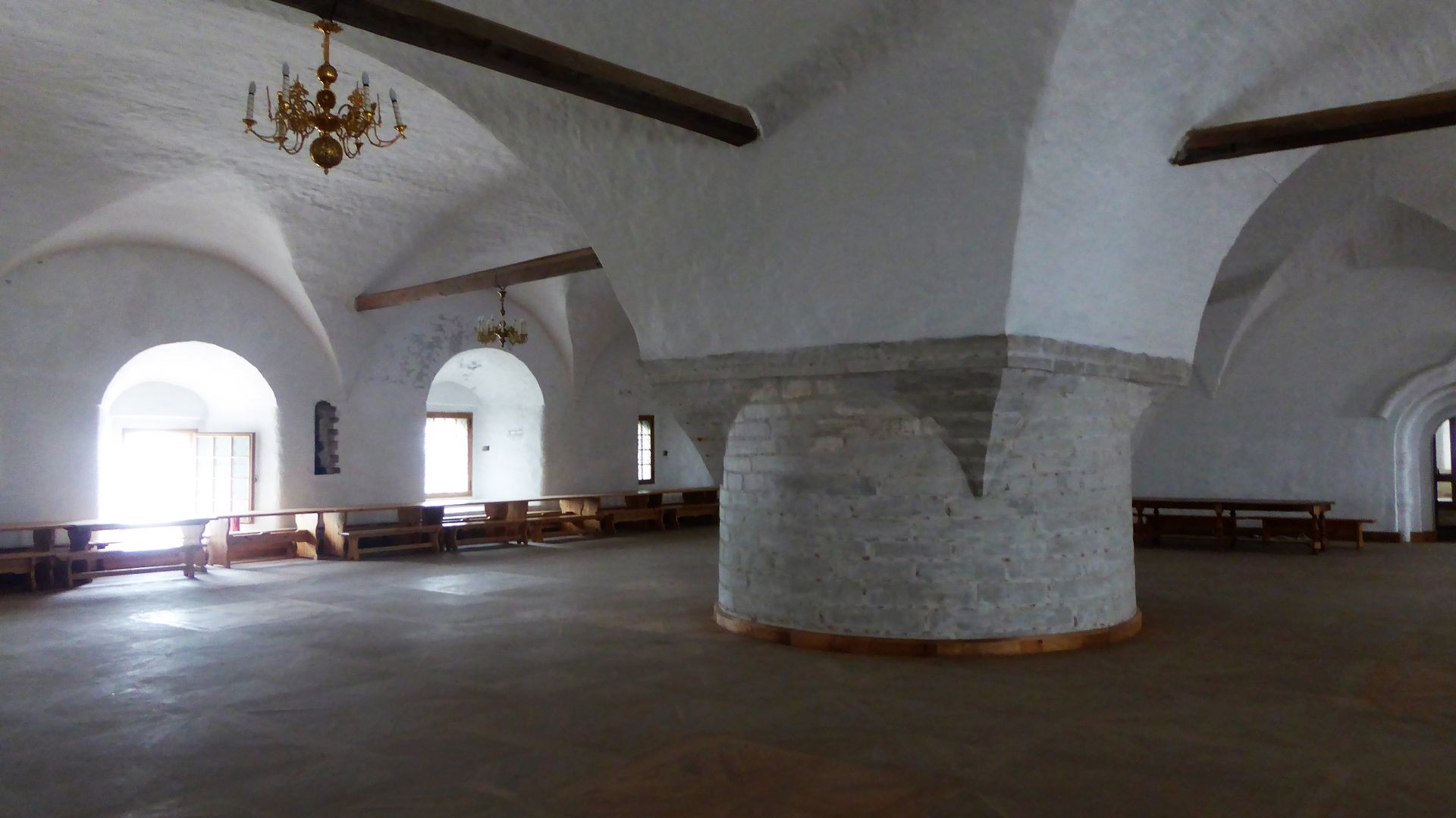
Since there were enough benches here, Don Curry took the time to get information about the monastery from the "Lonely Planet" travel guide. It stated that the Conception Chapel is located directly next to the refectory and all other areas are accessible via corridors. The chapel is actually located right next to the refectory, but it was currently under construction and almost completely empty. The connecting corridors were also affected by construction measures and closed off. Don Curry had to leave this area again via the stairs.
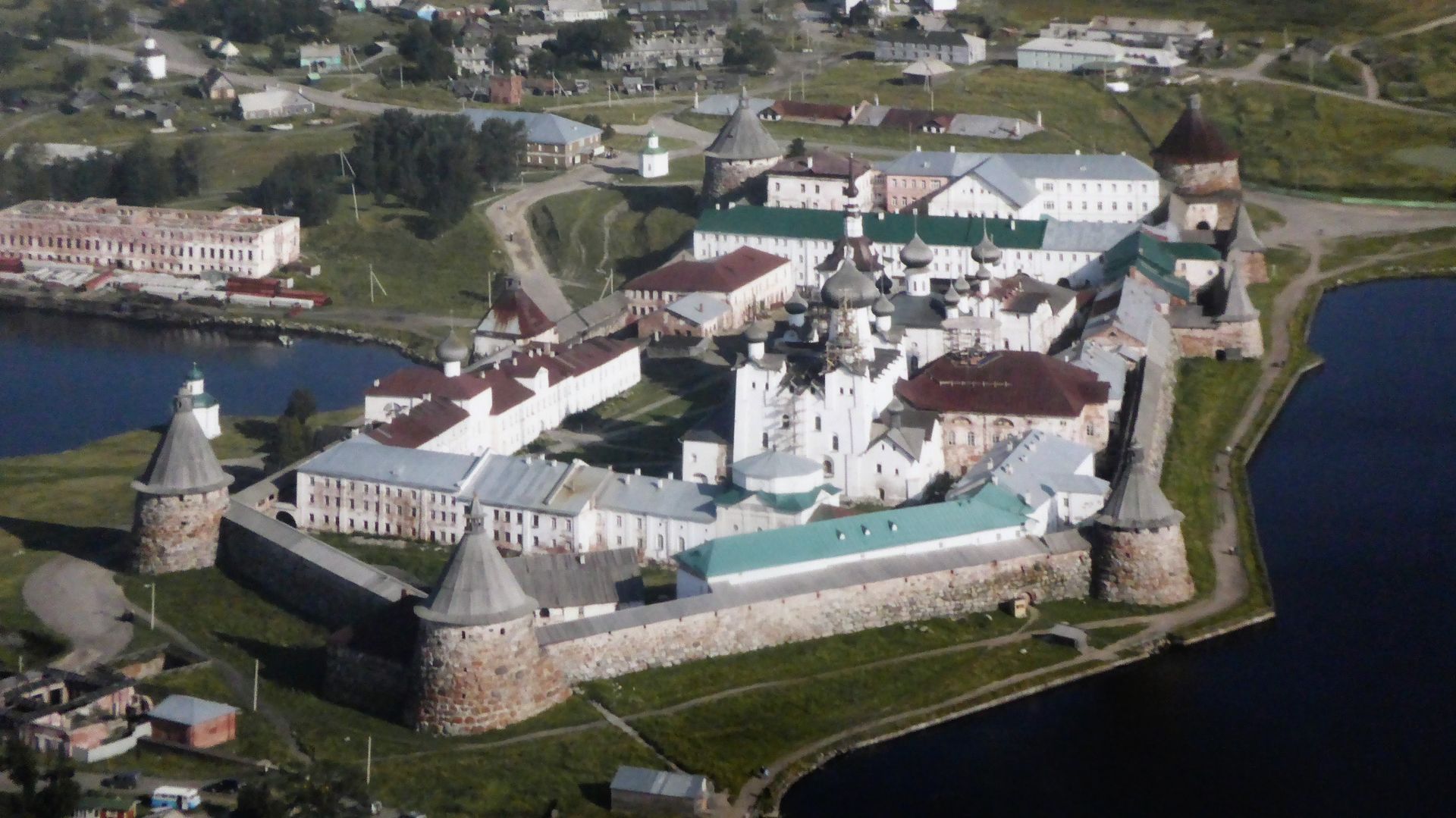
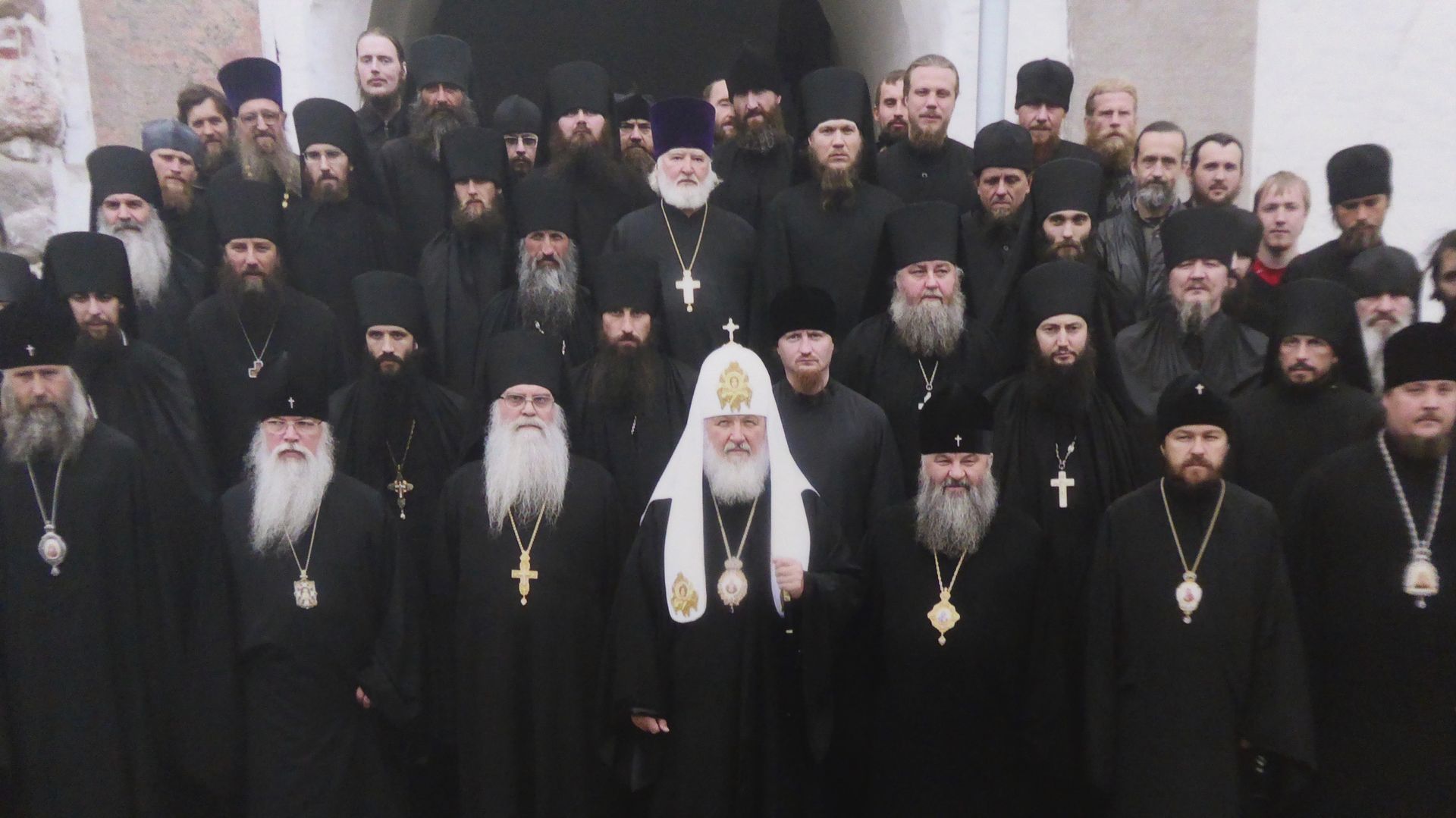
It was still raining when Don Curry re-entered the courtyard of the monastery. In a side area of the courtyard, which looked more like a storage area for building materials, he suddenly discovered a row of magnificent graves, certainly monks' graves. From here, a staircase led back to the upper floor. There, Don Curry finally found the main church of the monastery. It, too, was under construction, only the enormous iconostasis had been left in the otherwise completely empty church. Next to it, another room served as the current church area with iconostasis and countless icons and candlesticks. This seemed to be the spiritual and liturgical heart of the Solovetsky Monastery at the moment.


It was still raining, even harder than before, when Don Curry left this part of the monastery. Before exploring further parts of the monastery, he wanted to inquire at the tourist information if there was still a tour to Bolshoy Zayatsky planned for today, one of the most interesting neighboring islands. The information office is located in the immediate vicinity of the monastery. The employee there understood some English, but did not speak it. Nevertheless, Don Curry was able to find out that there would indeed be a boat tour to Bolshoy Zayatsky at 2:00 p.m. He should return to the tourist information fifteen minutes before the tour.
It was raining when Don Curry left the building, and it seemed to be getting colder. Since there had been no breakfast this morning, Don Curry's stomach was now demanding lunch. Don Curry trudged under the relentlessly gray rainy sky to the center of the Solovetsky village. Here, there were several hotels and accommodations, some with restaurants. In one of them, Don Curry ordered a fish soup "Solovetsky" and the famous "Herring" from Solovetsky from the young waitress. When he ordered the "Herring", the waitress made a clear sound of denial. So Don Curry chose halibut, which met with her approval. When he wanted to order french fries as a side dish, the denying sound came again; so Don Curry switched to fried potatoes, which led to the denying sound again. "Vegetables" the waitress suggested helpfully in a whisper, and when Don Curry now wanted "vegetables", she made a sound of approval. For beer, he had the choice between Carlsberg and Holsten, both from bottles. The food came after a reasonable time, but was not remarkable in any way - neither particularly positive nor terribly negative: it served its purpose.
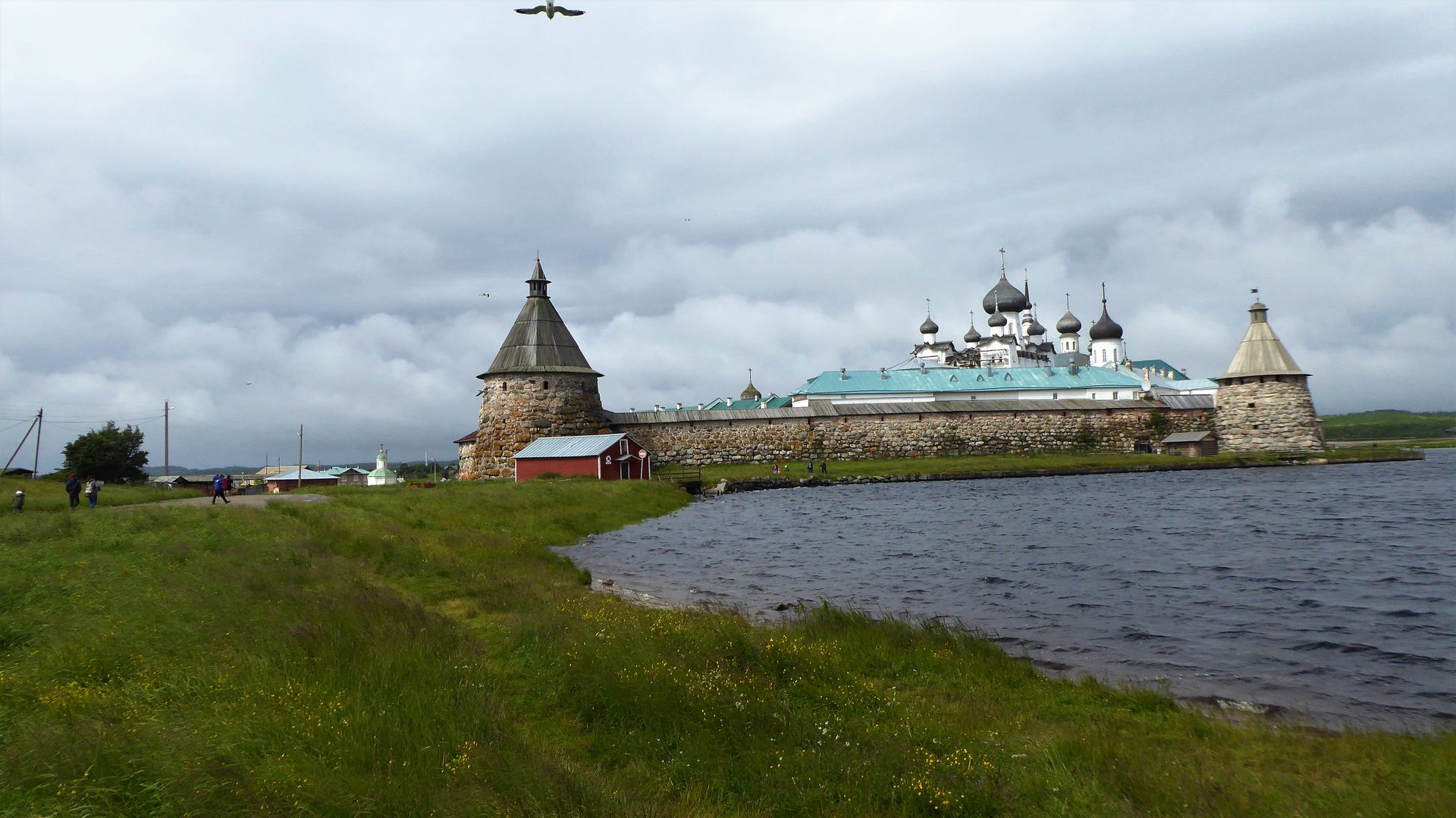
It wasn't raining when Don Curry left the restaurant. The sun even came out briefly. Don Curry used these 10 minutes to take enough photos, went to the tourist information, paid for his boat trip to Bolshoy Zayatsky, and waited with many others. At exactly 2:00 p.m., the tourism representative led the large crowd of tour bookers to the pier directly next to the monastery, where a sister ship of the "Metel-4" was waiting, the "Alexander Shabalin", named after a rear admiral of World War II. It took the almost fully occupied ship 45 minutes to reach the fourth largest of the Solovetsky Islands.
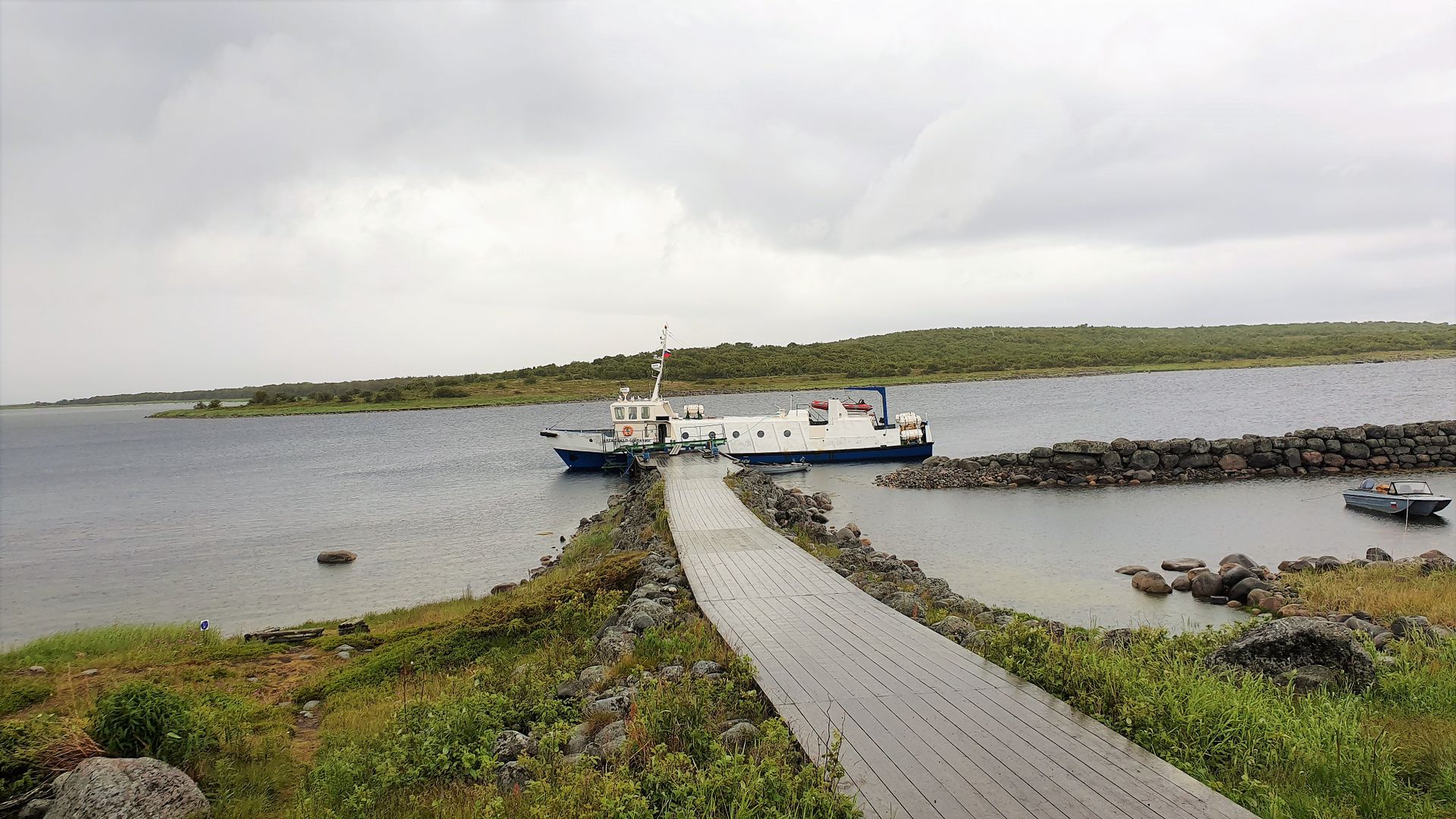
It was pouring rain when the tour group with Don Curry left the proud ship. Two tour groups were to be formed quickly, and Don Curry spontaneously joined a red-haired Russian with a long ponytail. He had a lot to tell, really a lot - in excellent Russian. Don Curry stood in the rain as these extremely incomprehensible things rained down on him. It was certainly interesting what the young man had to explain, but Don Curry only had the visual impressions. He first saw an island with typical subarctic vegetation: lots of moss, lots of lichens, a few flowers and a few stunted birch trees. In between there were small and large rocks everywhere, which gave the island a special character. But what was really unusual about this island were the 13 rock labyrinths that the Sami people had created here in prehistoric times, including the largest such rock labyrinth in Russia.

The Solovetsky Islands served as a spiritual center for the Sami and other inhabitants of Karelia. The islands were never permanently inhabited, but were always visited to hold ceremonies and maintain the mysterious labyrinths. It was only the arrival of the Orthodox monks and their permanent settlement on almost all the islands that led to the demise of the ancient cult. What remained were extremely photogenic moss-covered stone rings, which combine to form labyrinths.

It was still raining when the talkative guide with the red ponytail arrived at the small church of Bolshoy Zayatsky and finally unlocked it after providing many preliminary information. A simple but expressive iconostasis from the 18th century is still located in the little church and was of course extensively explained in detail by the know-it-all. Then it was finally time for the return journey, and Don Curry was protected from the rain for a whole 45 minutes.
It was still raining, even stronger, when the boat docked again at the main island. Don Curry went back to the monastery, bought a German description of the islands in the shop, which was specially marked with the official monastery seal by the saleswoman, and then spent some time in the refectory.
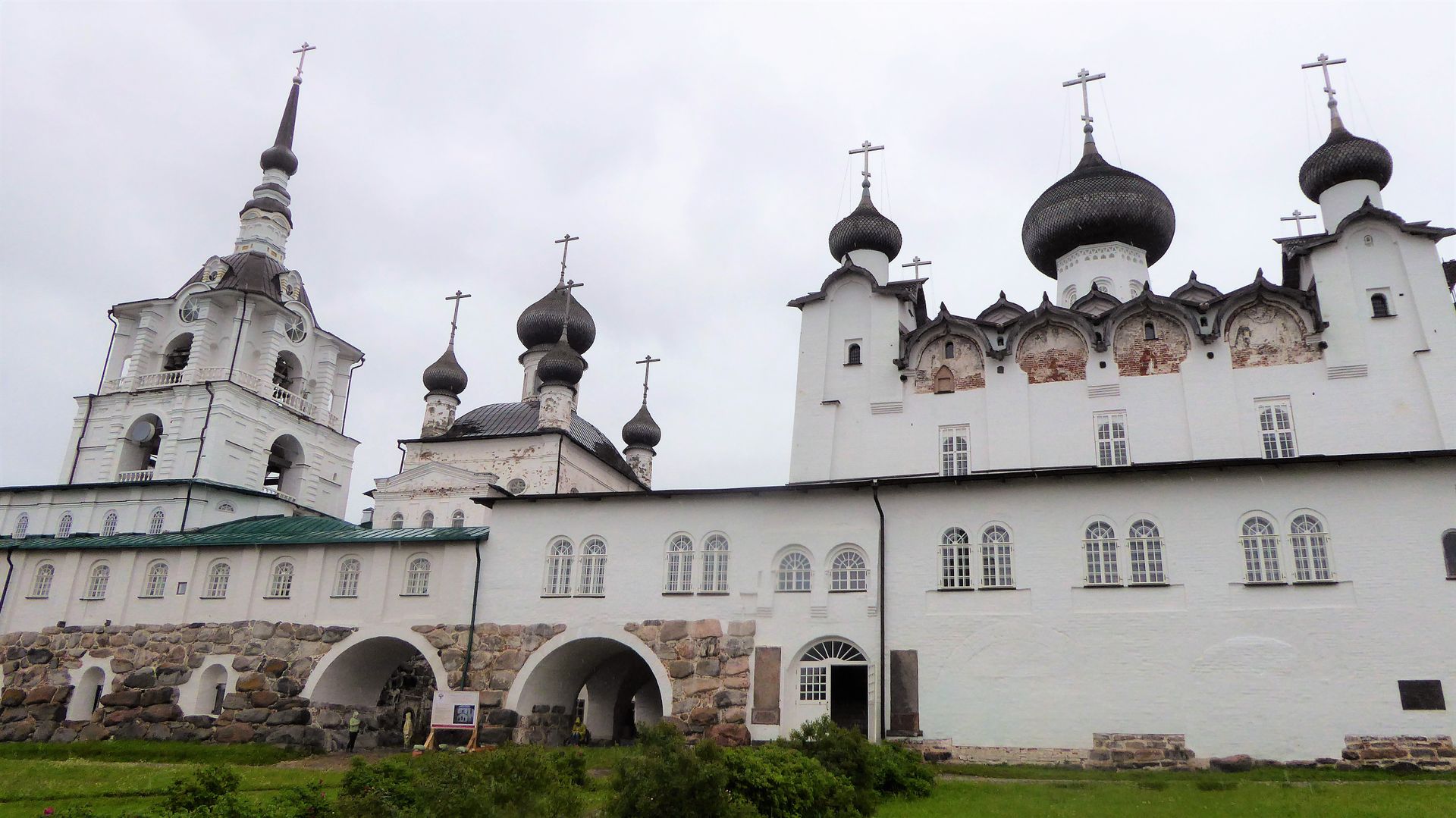
It was still raining when Don Curry made his way back to the pier, over an hour early. But he found a nice bench at the end of the pier and watched a group of children feeding their bread to seagulls. It was now that he noticed for the first time that his breath became visible when he exhaled - it had become so cold, probably only 5°C. Actually - he slowly realized - this depressing gloomy weather suited many parts of the history of these islands quite well: the certainly violent expulsion of the Sami and their cult, the destruction of the monks in Soviet times, and the use of the islands as a huge internment camp, a Gulag under Stalin, where thousands perished. Don Curry's thoughts had become equally gloomy - after 9 hours of cold and wetness!
And then, 15 minutes before the "Metel-4" could be boarded, the rain stopped, the sky cleared and the sun began to shine. Solovetsky in sunlight one more time - Don Curry enjoyed every single second.
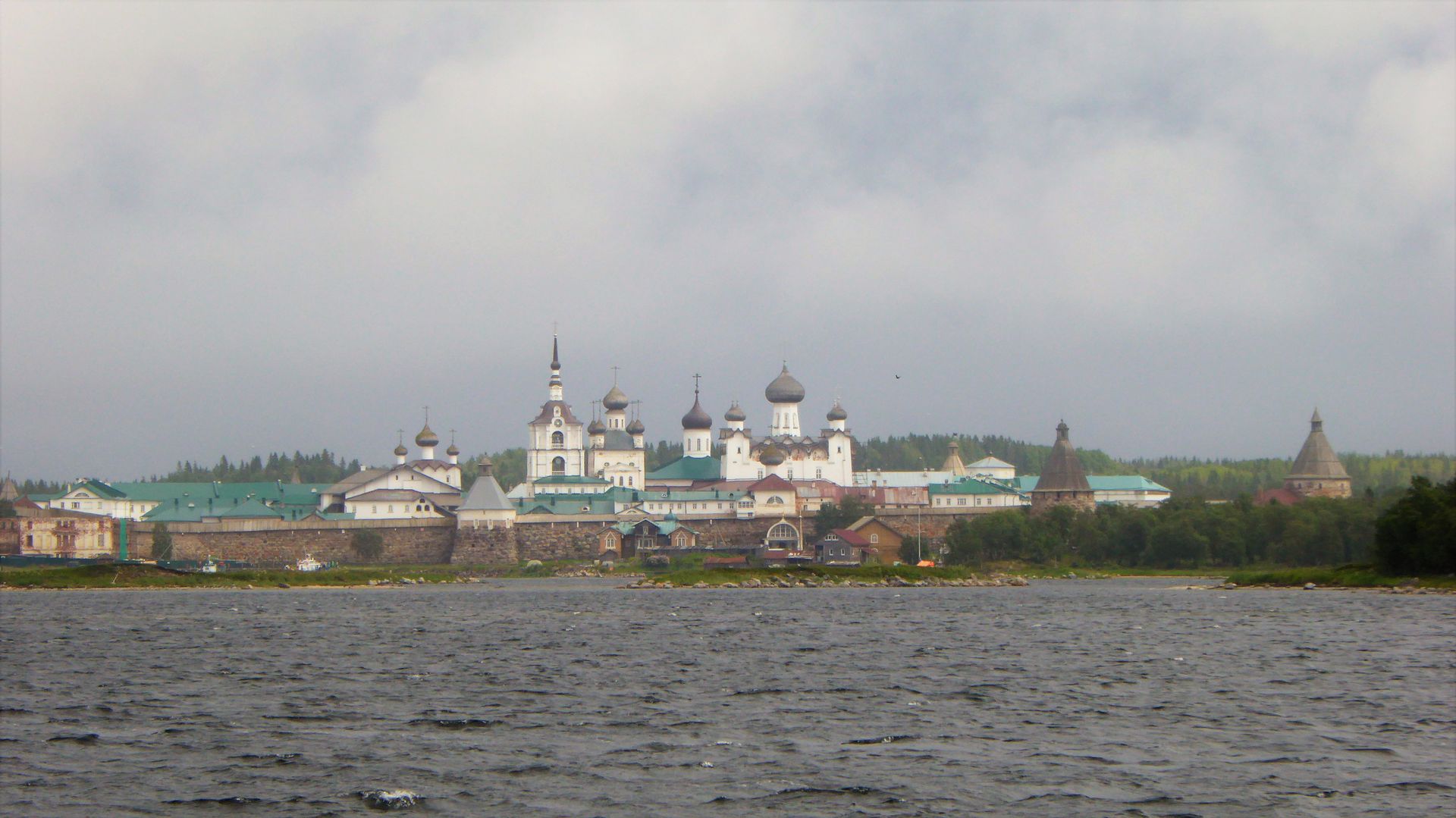
After a 2-hour return journey in an overcrowded ship and a noticeably rougher sea, Rabocheostrovsk was finally reached. On the way to his room, there was the restaurant, and Don Curry decided to stop there. Only then did he really notice how soaked and frozen he was after this day; he began to shiver uncontrollably again and again. But then came a Wodka Kalevala, a Krusovice, a creamy fish soup, and a pot of freshly prepared pelmeni. There was nothing more to shiver.
And yet - what a day: what an unceasingly gray sky, what immense quantities of rain, what unexpected cold. Don Curry felt it was the darkest November weather. But he shivered, with horror, wondering what the weather on the Solovetsky Islands would actually be like in November.
In his room, the first thing he did was turn on the heating...
Odgovor
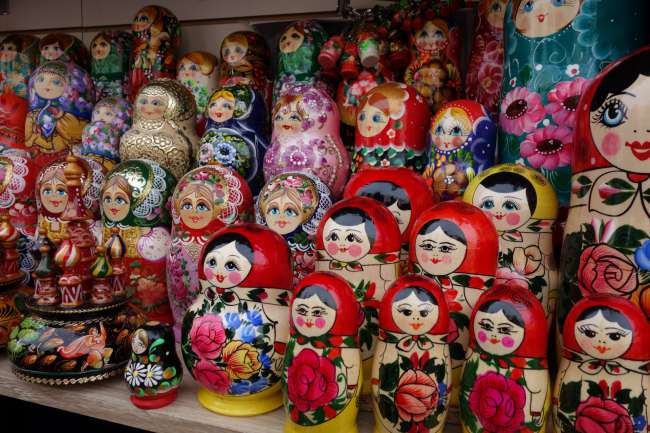
Izvješća o putovanju Ruska Federacija

